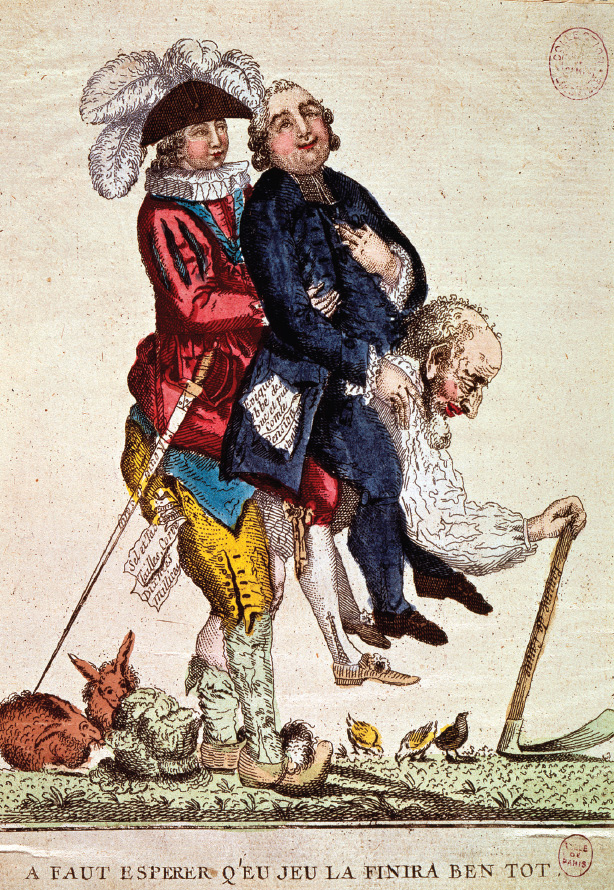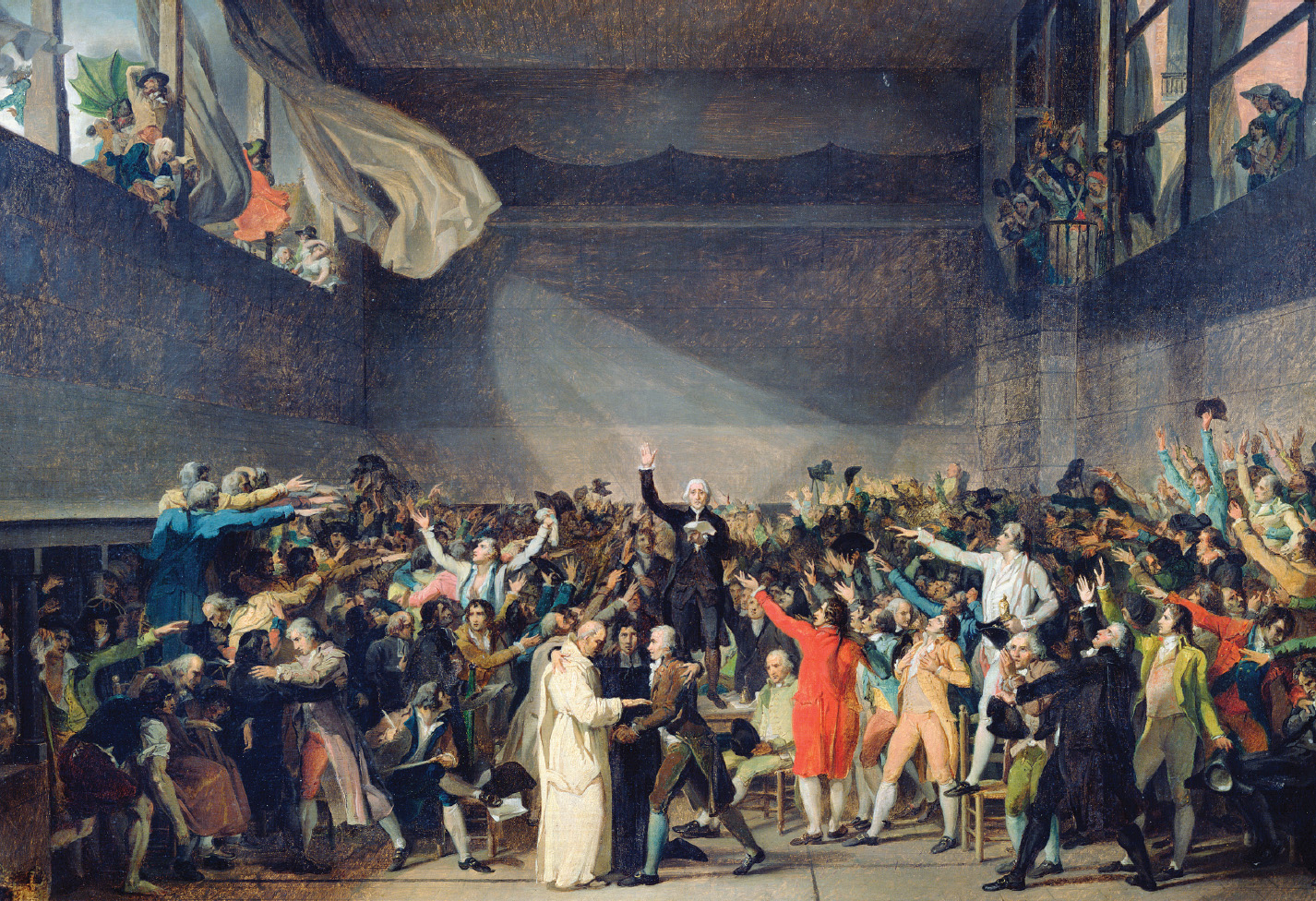A History of Western Society: Printed Page 620
A History of Western Society, Value Edition: Printed Page 629
The Formation of the National Assembly
Spurred by a depressed economy and falling tax receipts, Louis XVI’s minister of finance revived old proposals to impose a general tax on all landed property as well as to form provincial assemblies to help administer the tax, and he convinced the king to call an assembly of notables in 1787 to gain support for the idea. The assembled notables, mainly aristocrats and high-ranking clergy, declared that such sweeping tax changes required the approval of the Estates General, the representative body of all three estates, which had not met since 1614.
Facing imminent bankruptcy, the king tried to reassert his authority. He dismissed the notables and established new taxes by decree. The judges of the Parlement of Paris promptly declared the royal initiative null and void. When the king tried to exile the judges, a tremendous wave of protest swept the country. Frightened investors refused to advance more loans to the state. Finally in July 1788, a beaten Louis XVI bowed to public opinion and called for the Estates General. Absolute monarchy was collapsing.

As its name indicates, the Estates General was a legislative body with representatives from the three orders, or estates, of society: the clergy, nobility, and everyone else. Following centuries-old tradition, each estate met separately to elect delegates, first at a local and then at a regional level. Results of the elections reveal the mind-set of each estate on the eve of the Revolution. The local assemblies of the clergy, representing the first estate, elected mostly parish priests rather than church leaders, demonstrating their dissatisfaction with the church hierarchy. The nobility, or second estate, voted in a majority of conservatives, primarily from the provinces, where nobles were less wealthy and more numerous. Nonetheless, fully one-third of noble representatives were liberals committed to major changes. Commoners of the third estate, who constituted over 95 percent of the population, elected primarily lawyers and government officials to represent them, with few delegates representing business and the poor.
The petitions for change drafted by the assemblies showed a surprising degree of consensus about the key issues confronting the realm. In all three estates, voices spoke in favor of replacing absolutism with a constitutional monarchy in which laws and taxes would require the consent of the Estates General in regular meetings. There was also the strong feeling that individual liberties would have to be guaranteed by law and that economic regulations should be loosened.
On May 5, 1789, the twelve hundred delegates of the three estates gathered in Versailles for the opening session of the Estates General. Despite widespread hopes for serious reform, the Estates General quickly deadlocked over the issue of voting procedures. Controversy had begun during the electoral process itself, when the government confirmed that, following precedent, each estate should meet and vote separately. During the lead-up to the Estates General, critics had demanded a single assembly dominated by the third estate. In his famous pamphlet What Is the Third Estate? the abbé Emmanuel Joseph Sieyès (himself a member of the first estate) argued that the nobility was a tiny, overprivileged minority and that the third estate constituted the true strength of the French nation. (See “Primary Source 19.2: Abbé Sieyès, What Is the Third Estate?”) The government conceded that the third estate should have as many delegates as the clergy and the nobility combined, but then upheld a system granting one vote per estate instead of one vote per person. This meant that the two privileged estates could always outvote the third.

In angry response, in June 1789 delegates of the third estate refused to meet until the king ordered the clergy and nobility to sit with them in a single body. On June 17 the third estate, which had been joined by a few parish priests, voted to call itself the National Assembly. On June 20, excluded from their hall because of “repairs,” the delegates moved to a large indoor tennis court where they swore the famous Tennis Court Oath, pledging not to disband until they had been recognized as a national assembly and had written a new constitution.
The king’s response was disastrously ambivalent. On June 23 he made a conciliatory speech urging reforms, and four days later he ordered the three estates to meet together. At the same time, Louis apparently followed the advice of relatives and court nobles who urged him to dissolve the Assembly by force. The king called an army of eighteen thousand troops toward the capital to bring the delegates under control, and on July 11 he dismissed his finance minister and other more liberal ministers. It appeared that the monarchy was prepared to use violence to restore its control.